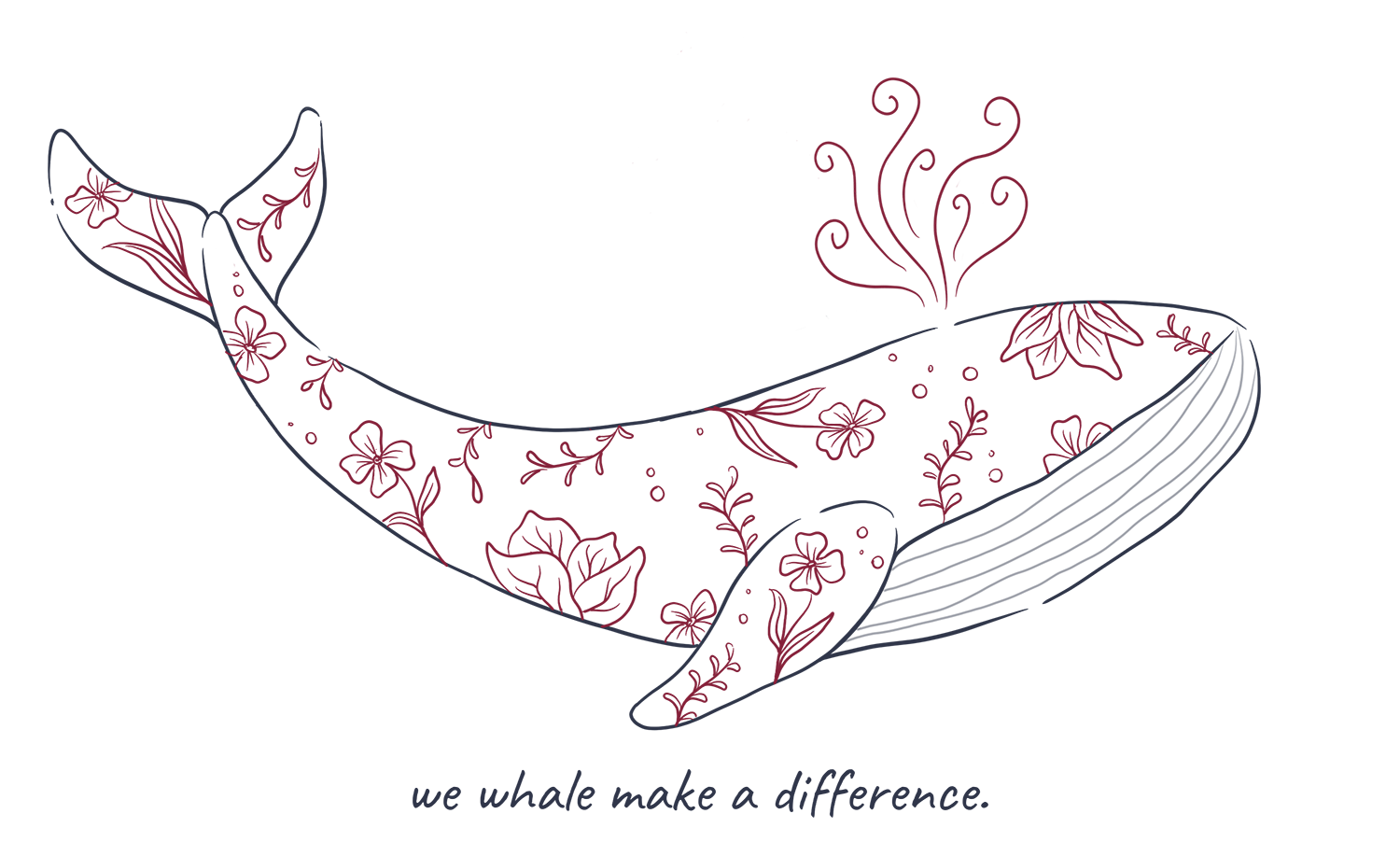As top predators in the marine ecosystem, whales play a significant role in the health of the ocean.
Whales - these majestic marine mammals are often regarded in a mystified aura and continue to surprise us with their often familiar and social mannerisms when interacting with humans. There is undoubtedly a special familiar bond between whales and humans, despite massive differences in our molecular and genetic structures. What is clear when gazing into their wisdom-filled eyes are the rich bio-histories whale families have carried through generations. Yet their legacy and ways of life continue to face threats from oil, gas and shipping industries, as well as a disquieting number of others through direct and indirect ties with the aforementioned. Commercial whaling and climate change all have extensive contributing factors to threats on the declining population of whales. Many of the adverse effects are directly linked to human activities in response to profit-driven development and consumption demands.
It's hard to imagine on such a large scale what we can do on an individual level to make any sort of impact on preserving their space and existence in this world.
Hopefully with greater awareness of the plight whales are facing, together we can realize our ability to impact (even through daily micro-actions) and move closer to reaching global conservation goals for these highly intelligent gentle giants.

Why they matter
Whales are one of the marine ecosystem's top predators and their role in the overall health of the ocean is especially significant.
Capturing carbon
Each great whale plays an important part in turning the tide on climate change by sequestering an estimated average of 33 tons of CO2. How? By fertilizing microscopic plant-like organisms that play a vital part in combating climate change.
Ocean's gardeners
These organisms at the ocean's surface are called phytoplankton. Whales supply them with life-giving nutrients when they come up near the surface to defecate. In turn, thriving forests of phytoplankton absorb hundreds of tons of carbon from the atmosphere.
Threats they're facing
The extensive impact of climate change has affected whale population as well as their overall livelihood. Below are some of the most critical threats whales face.
Climate change
As climate change has altered seawater temperature, winds, and ocean currants and affected the rise in temperature and loss of sea ice, the whales' habitat and food sources have also suffered as a result. A large patch of plants and animals that whales feed on have moved or shifted in abundance. Some whales may have to migrate further to reach a feeding ground, which means less time for foraging on top of a diminishing food supply.
The reproductive rate of the North Atlantic right whale (endangered) have already been hurt by current food availability.
Commercial whaling
Over 1,000 whales a year are killed for commercial purposes despite the continuation of the commercial whaling moratorium of 1986 and a ban on the international trade of whale products. Three countries are known to continue their whale hunts - Iceland, Norway, Japan - with the latter conducting the activity in its own territorial waters, outside of international controls.
The blue whale was hunted close to extinction in the 20th century.
Industry
Shipping and ferry lanes often overlap directly with whale migration paths for feeding and breeding as well as areas for nursing their young. Bycatch, ship collisions, and pollution can injure or kill whales - yet the lack of political will to address these issues in many countries are largely due to lack of awareness of mitigation tools, as well as the scale of the problem.
Noise disturbances from shipping activity and gas and oil development can damage whales' hearing and disrupt essential whale communication that guide each other towards feeding and breeding grounds. These disturbances can also throw whales off their migratory paths.
With greater awareness and understanding of the threats whale families face, we can make more intentional choices to reduce our own carbon footprint. Our responsibility is great when it comes to making consumption choices that don't directly (and indirectly) invest in industries that can pose harm to whales and the marine ecosystem they depend on.

Information sourced from:
www.worldwildlife.org/species/whale
World Wildlife Magazine
us.whales.org/green-whale